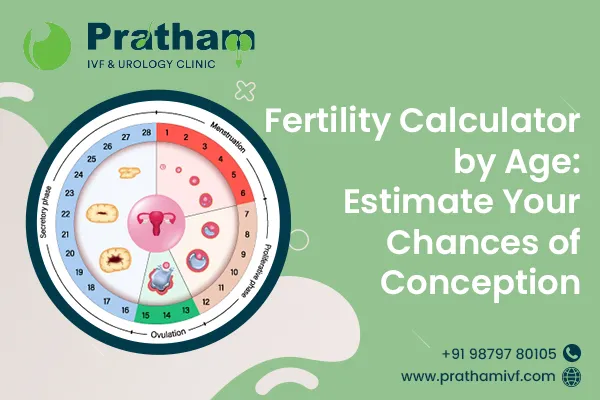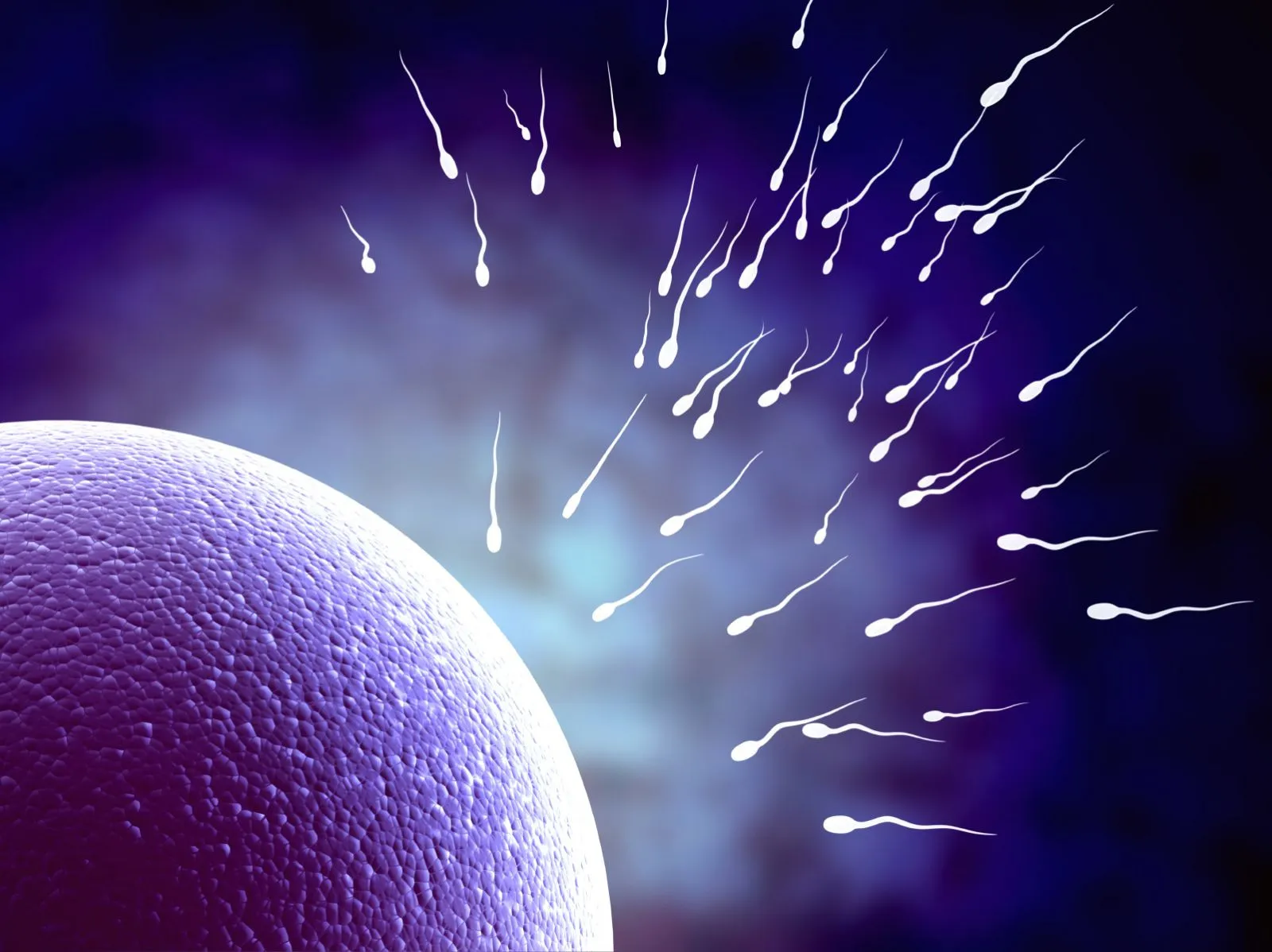
Fertility plays a major role in family planning, especially when couples are trying to conceive. Understanding how fertility changes with age can help individuals and couples make better decisions about when to start or grow their families. As people delay parenthood due to career, education, or personal choices, it becomes more important to know the ideal time for conception. A fertility calculator is a useful tool that provides insights into how age affects your chances of getting pregnant. It estimates fertility based on key factors, offering guidance and clarity during the conception journey.
Understanding Fertility Rates by Age
Fertility is closely linked to age and plays a major role in a couple's ability to conceive. In women, fertility is at its peak between the ages of 20 to 30. After 30, it continuously declines, and after 35, the decline accelerates. By the time a woman reaches 40, the chances of natural conception are significantly lower. In men, fertility also decreases with age, although the decline is slower. After age 40, sperm quality and motility may reduce, which can impact the chances of successful conception and increase the risk of complications.
Understanding how fertility rates by age work can help couples make timely and informed decisions about family planning. For those facing age-related fertility challenges, consulting a fertility specialist and considering options like IVF or ICSI can improve the chances of achieving a healthy pregnancy.
For Women:
- Best fertility years range from 20 to 30 years old.
- After age 30, fertility begins to gradually decline.
- Around age 35, the decline becomes steeper.
- After age 40, natural conception becomes significantly more difficult.
For Men:
- While men generate sperm throughout their lives, sperm quality and count decrease gradually around age 40.
- Older men may experience reduced fertility and higher chances of genetic complications.
Other Factors That Affect Fertility:
- Health conditions like PCOS, thyroid issues, and endometriosis.
- Smoking, a bad diet, a lack of sleep, and drinking alcohol are all instances of negative lifestyle behaviors.
- Genetics, environmental exposure, and chronic stress also play a role.
Using a Fertility Calculator
A fertility calculator is a digital tool designed to estimate your chances of conceiving based on your age and other biological data.
How It Works:
- Uses your age, menstrual cycle length, ovulation window, and intercourse timing to calculate fertile days.
- Some advanced calculators may ask for additional details like BMI, health conditions, and the partner's age.
Why It's Helpful:
- Provides couples with an overview of the optimal days to attempt for pregnancy.
- Helps plan ovulation tracking and timed intercourse.
- Ideal for women who are unsure about their ovulation schedule.
Limitations:
- A calculator provides general estimates, not exact predictions.
- Does not account for underlying health issues, medical history, or fertility disorders.
- Should not replace professional medical evaluation.
Always consult a fertility specialist or gynecologist for a detailed and personalized fertility assessment.
Predicting Your Chances of Conceiving
Many online fertility calculators offer a simple way to gauge fertility based on age. While not diagnostic tools, they help you understand patterns and probabilities.
These tools can be especially useful for couples planning their first child or trying to conceive after a gap.
Why Knowing Your Chances Matters:
- Helps you make timely decisions about conception or fertility treatments.
- Reduces stress by offering a realistic understanding of success probabilities.
- Encourages early action for couples facing age-related fertility challenges.
Tips for Improving Fertility
While age is a major factor, your daily habits and lifestyle choices can also impact fertility. Here are some simple, science-backed tips to boost reproductive health:
1. Maintain a Healthy Weight
- Both underweight and overweight conditions can affect ovulation and sperm production.
- Aim for a balanced BMI and avoid extreme diets.
2. Eat a Fertility-Friendly Diet
- Include whole grains, fruits, leafy greens, and lean proteins.
- Foods rich in zinc, folic acid, omega-3s, and antioxidants are especially helpful.
3. Stay Active
- Regular, regular activity helps hormone balance and healthy weight.
- Avoid excessive or intense workouts, which can lower fertility in some individuals.
4. Limit Stress
- Chronic stress affects hormone levels and menstrual cycles.
- Practice yoga, meditation, or mindfulness to manage stress levels.
5. Avoid Harmful Habits
- Quit smoking, limit alcohol, and reduce caffeine intake.
- These habits are known to reduce fertility in both men and women.
6. Schedule Regular Checkups
Stay on top of your reproductive health by seeing a gynecologist or fertility specialist regularly.

Why Choose Pratham IVF Center?
When it comes to starting a family, choosing the right fertility clinic can make all the difference. Pratham IVF Center is widely recognized as one of the best infertility clinics in Ahmedabad, offering advanced treatments, compassionate care, and a high success rate for hopeful parents.
Specializing in modern infertility solutions such as IVF (In Vitro Fertilization), ICSI (Intracytoplasmic Sperm Injection), and IUI (Intrauterine Insemination), Pratham IVF delivers tailored treatments based on each couple's unique needs. Whether you've just begun exploring fertility treatments or have tried without success in the past, Pratham IVF Center provides expert guidance and proven solutions to help you grow your family.
Ranked among the best IVF hospitals in Ahmedabad, continues to change lives with its commitment to excellence, innovation, and patient-first care.
Here's why Pratham IVF stands out as the best IVF clinic and fertility center in Ahmedabad:
- A team of experienced fertility specialists who understand your journey.
- State-of-the-art laboratories and modern diagnostic tools for precise treatment planning.
- Comprehensive care begins with an initial meeting and continues through successful conception and onto later stages.
- A straightforward, ethical approach that promotes trust and comfort in each patient.
Conclusion
Age plays a crucial role in fertility, and knowing your fertile window can help you take the right steps toward conception. A fertility calculator is an excellent beginning point to measure your probability of conceiving, specifically when combined with healthy lifestyle choices. However, it's essential to realize that everyone's reproductive path is different. While online tools provide useful insights, only a medical professional can give you a clear and personalized fertility plan.
If you're considering parenthood and want expert guidance tailored to your needs, reach out to Pratham IVF Center—Ahmedabad's leading clinic for modern infertility treatments. Empower your journey with information, care, and trusted expertise.
Book appointment today +91 98797 80105 | Email: prathamivf@gmail.com
 Ahmedabad Top Rated IVF Center
Ahmedabad Top Rated IVF Center




